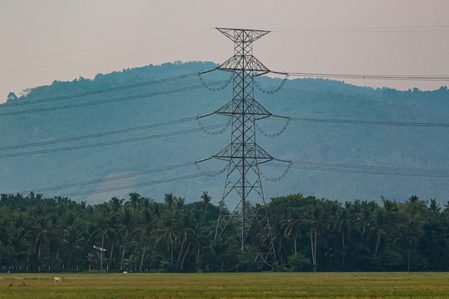SUMMARY
This is AI generated summarization, which may have errors. For context, always refer to the full article.
![[OPINION] Finger-pointing in the power system sector](https://www.rappler.com/tachyon/2024/01/finger-pointing-power-sector-January-18-2024.jpg)
The latest incident, the first Yellow Alert in the power grid of the year, proves to be a case of why communicating power system jargon is important. After all, it’s consumers who bear the brunt and cost of rotating or sustained power interruption.
Based on news reports, the DOE reiterated the responsibility of the System Operator (SO), which is the National Grid Corporation of the Philippines (NGCP), to ensure not only security but reliability of the grid.
On the other hand, the NGCP repeated its call for more power plants to be built. They mentioned that they are ready to deliver power to consumers but emphasized the need to maintain balance in the system. That is, generators must be synchronized and the system must be stable so that distribution utilities (DUs) can be given the go signal to distribute power.
I will not attempt to pin blame or to adjudicate. What I would like to highlight is how consumers, literally and figuratively, are kept in the dark for days.
For most consumers, the first to be blamed is the DU. Local officials blame the NGCP, as with how the DOE and lawmakers framed their statements. NGCP is washing its hands, saying that they are merely a “highway” of power akin to a vehicle paying a toll to use an expressway.
The grid is more complex than just supplying the demand with supply. Because, like any good system, the grid needs to be stable to deliver power. We often overlook this because adequacy is just the balance of power, that is, the supply should be greater than the demand. However, the reliability and stability of the grid are equally important aspects. Without the facility to securely deliver power, minimizing disturbances that may randomly occur, then power will not be delivered. Similarly, if the conditions of the grid are not optimal for power to be delivered, the system will collapse and power will not be delivered. Worse, generators may lose synchronicity and trip. We also forget that thermal, bulk generators are not like our diesel generator sets in our households. They take time to be “turned on” and “turned off” (ramp rate is the technical term).
In short, each case of interruption, especially if widespread and takes long, may be due to different causes.
DUs can be blamed if the problem is the distribution system. NGCP takes a large blame for it having the sole responsibility to maintain balance, voltage, and frequency. Generation companies for not delivering the scheduled power. On the policy side, the DOE is providing overall supervision, and the Energy Regulatory Commission (ERC), is our first court of resort when it comes to complaints in the energy sector.
This seemingly complicated setup after the reforms introduced by the Electric Power Industry Reform Act or EPIRA needs to be explained again and again to the general public. There is an irony that the EPIRA desires consumers to have the power of choice yet the power crisis persists and manifests in rotation power interruptions. As far as legislation is concerned, there have been many calls to amend EPIRA. For one, tighter regulation and heftier penalties are seen to be deterrents for natural monopolies. On the enforcement side, our regulators should be more circumspect of the technical, legal, and social aspects that power crises bring.
As of writing, the ERC is conducting its investigation into the incident. It would be good to make this report public so that students of engineering can learn from the incident and finally determine who should be responsible for keeping households in the dark.
In sum, the task of maintaining a bulk power system rests on the harmony between power players, regulators, and end-consumers. But the responsibilities are not equal. There is a delicate balance of parameters and measurements that need to be maintained to ensure that supply is sufficient and is delivered efficiently and effectively. The modern trend is to devolve from this heavily centralized setup to a more democratized system wherein consumers have the power choice – one dream that EPIRA envisioned more than 20 years ago. – Rappler.com
Edward Joseph H. Maguindayao teaches at the Department of Electrical Engineering, College of Engineering and Agro-Industrial Technology, University of the Philippines Los Baños.
Add a comment
How does this make you feel?




![[ANALYSIS] Why do we pay higher power rates when we have power outages?](https://www.rappler.com/tachyon/2024/07/tl-higher-power-rates-higher-power-outages.jpg?resize=257%2C257&crop=401px%2C0px%2C1080px%2C1080px)





There are no comments yet. Add your comment to start the conversation.